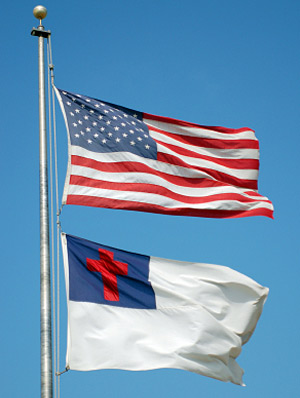 We first suspected it in the early ’90s. We began to see corroborating research in the 2000s. Now the growing evidence is becoming undeniable. In the United States, people are leaving the Church and rejecting Christianity, in large part, because of our unseemly connections to national politics.
We first suspected it in the early ’90s. We began to see corroborating research in the 2000s. Now the growing evidence is becoming undeniable. In the United States, people are leaving the Church and rejecting Christianity, in large part, because of our unseemly connections to national politics.
Some researchers call it “political backlash” and others refer to it as the “politicization of religion.” But the American Church is increasingly viewed by the general population as being in bed with right wing national politics and it repulses them. They see Christians holding their voting records with the same reverence as their loyalty to Christ. They see us stumping for our favorite politicians with more conviction and enthusiasm than when we’re witnessing for Jesus. They see the Church working harder to elect the “right” candidate than it does to protect immigrants or defeat racism. They see us caring more about state and national politics than we do about the Kingdom of God, even when the national politics are in conflict with obvious Kingdom of God values. So, to avoid the risk of being identified with a certain brand of American politics, to keep from being lumped in with the ways and means and goals of those politics, lots of women and men are opting to stay away from the Church.
We have only ourselves to blame.
Russell Moore, the president of the Southern Baptist Ethics and Liberty Commission, told a writer’s conference last summer, “If people reject the Church because they reject Jesus and the Gospel, we should be saddened but not surprised. But what happens when people reject the Church because they think we reject Jesus and the Gospel? That’s a far different problem. What if people don’t leave the Church because they disapprove of Jesus, but because they’ve read the Bible and have come to the conclusion that the Church itself would disapprove of Jesus? That’s a crisis.”
The research is backing that up.
The American Sociological Review published findings twenty years ago that concluded distaste with the Church’s involvement with national politics is prompting people to reject church. Michele Margolis, a political science professor at Penn, writes that Americans are “falling away from religion because they see it as so wrapped up with Republican politics.” Research by David Campbell, a political scientist at the University of Notre Dame, claims that “something as simple as reading a news story about a Republican who spoke in a church could prompt some Democrats to say they are non-religious.” Barna Research shows that as Christians display an increased fervor for national politics, the public is increasingly viewing the Church as “narrow-minded,” “homophobic,” “misogynistic,” and “racist.” Studies show that young people especially are rejecting the Church because it looks like an extension of the Republican Party.
Robert Jeffress, the Senior Pastor at First Baptist Church in Dallas, the nation’s largest Baptist congregation, publicly calls all Democrats “godless.” There’s a house two blocks from mine here in Midland proudly flying a large flag containing a profane slogan directed against the current president of the U.S. over a large wooden cross in the yard and in front of another Christian cross on the house’s front wall.
We have no one to blame but ourselves. And it cuts both ways. We hear it from both sides.
“All Christians have to vote Republican because of the gay marriage position of the Democrats.”
“No, all Christians have to vote Democrat because of the military and war policies of the Republicans.”
“No, the Church supports Republicans because of the abortion issue.”
“Wrong, the Church supports Democrats because of the immigration issue.”
It’s easy to understand why someone seeking the Kingdom of God that transcends the kingdoms of the world would be turned off by that kind of talk. It’s no wonder people looking for something better and higher and eternal would be disgusted with that attitude. Using national political goals and means or a party’s platform as an end-all-be-all referendum on the lordship of Jesus is what’s weakening God’s Church. We’re viewing Jesus and interpreting Scripture through our party and politicians instead of vetting our politicians and evaluating our parties through Jesus and Scripture. Jesus did not come so we could create better versions of the kingdoms of this world; he came so we could belong to and participate in an entirely new and eternal Kingdom of God. It’s not that one party is good and the other is bad; it’s not that one party is righteous and the other is evil; it’s certainly not that one party is Christian and the other is “godless.” It’s that both parties belong to one fallen, broken, sinful, corrupt, worldly system. And it’s not going to save you and it’s not going to save the United States.
Jesus Christ is never going to be president of the United States. One, he’s not running. Two, you wouldn’t vote for him if he did. Think about Jesus’ platform: “Sell all you have and give it to the poor. Turn the other cheek. Love your enemies.” If Jesus had a bumper sticker on the back of his donkey, it would say, “Be Last!” or “Vote for Me and Die!” I’m not sure we always recognize that. Ironically, most everyone else does.
When we communicate to the public that we Christians are putting our faith and trust in these parties and politicians to save us, they know we’re on the wrong track better than we do. When we chase after political power and influence, when we sanctify a politician or a party in order to gain worldly control, most people see right through it.
Jesus came to be crowned King, not with priceless jewels but with painful thorns. He didn’t come to sit on a throne, but to hang from a cross. Jesus doesn’t come with t-shirts and stickers and multi-million dollar campaigns. He doesn’t save the world with armies and missiles and markets and policies or power or force or threat. He saves the world through sacrificial love. And suffering. Service. And grace. Jesus rules with a towel, not a sword, He saves with mercy. Forgiveness. Peace.
Our discipleship should be defined by those things. Our identity should be found in those things. Our churches should be characterized by those things. When it is, people will break down our doors to get closer to God. When it’s not? Well, we have only ourselves to blame.
Peace,
Allan

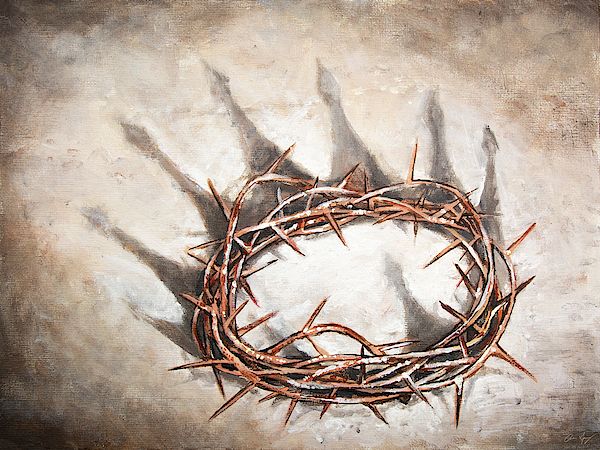
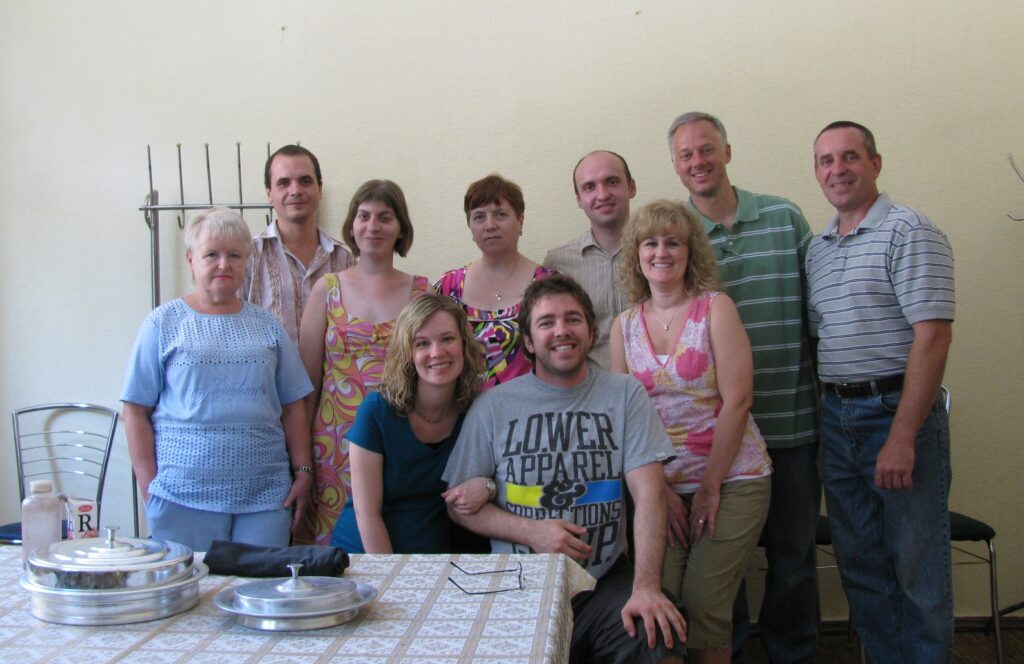
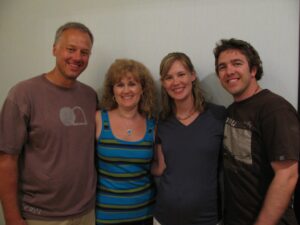
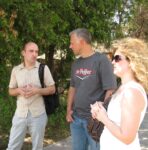



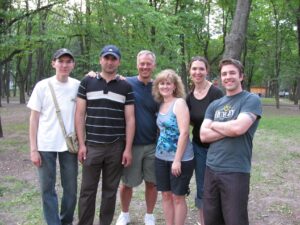
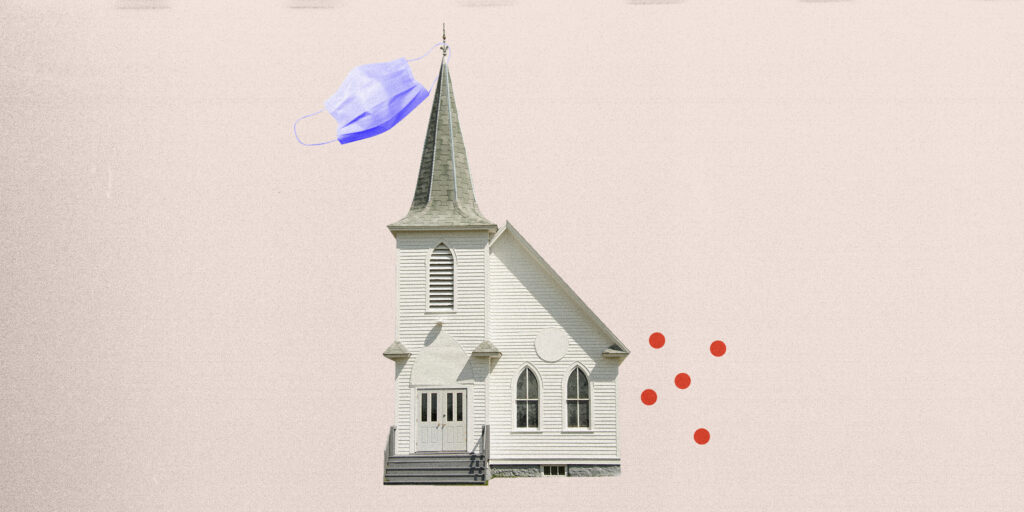

Recent Comments